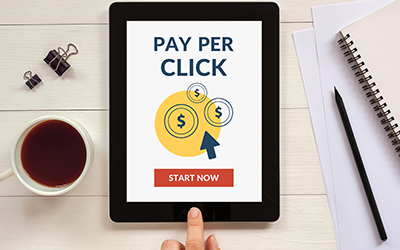Image Credit: File ID 85247487 | © Carmenmurillo | Dreamstime.com
Image Credit: File ID 85247487 | © Carmenmurillo | Dreamstime.com

It is imperative for medical practices to tap into digital marketing to remain competitive. Cosmetic and plastic surgery clinics are no exception to the need for digital marketing. With an increasing demand for cosmetic procedures, plastic surgeons must create a robust digital marketing strategy to reach target audiences effectively.
Here are the top four digital marketing trends that every plastic surgeon should incorporate into their marketing strategy:
SEO has been going strong for over 20 years now as an essential marketing medium to attend to. The importance of SEO has stayed the same for all major industries with potential buyers online. If you want new patients to find you, increasing your digital presence with keyword optimization, local business listings, social media representation, and relevant content supporting your authority is vital.
SEO for plastic surgery helps increase online visibility, generating more traffic and discussions, ultimately leading to more conversions. By optimizing the plastic surgery SEO or cosmetic procedures SEO, websites with relevant keywords such as "Mommy Make Over" and "Plastic Surgery Near Me" can improve search engine ranking and attract more visitors looking for your services.
Many established cosmetic practices with a good patient base or strong brand awareness resulting in large numbers of internal referrals can often rely on SEO as the single digital marketing strategy. Although this can happen, it's important to point out that a strong SEO strategy is the foundation of digital marketing. As the needs of a practice grow, medical practice owners can strengthen an SEO campaign with additional digital marketing campaigns like Pay-Per-Click, Review Generation, Social Media Marketing, and more.
Pay-Per-Click (PPC) and videos are powerful tools to help plastic surgeons increase brand awareness and attract more patients. By now, most business owners have a basic understanding of Pay-Per-Click and its need within the medical industry - especially with doctors focusing on elective procedures.
Several top-ranking digital search platforms offer PPC, where ads can be crafted with text and images. Budgets are then set to distribute ads based on the number of clicks the ad will receive - hens the term "pay per click." Other settings can be strategically implemented to ensure proper execution of the campaigns tailoring demographics, time, and the interests of potential patients.
Numerous PPC platforms now offer the ability to upload high-quality videos showcasing a plastic surgeon's skills, facilities, and testimonials. For years YouTube has been the leader in Video advertising (second to Television) as a form of viral marketing. However, with an increasing number of companies introducing entertaining platforms that attract audiences online, doctors have numerous options when considering video marketing - and not just with PPC.
Videos enhance trust with potential patients and offer increased authority for doctors. With the ability to craft short-form video content, such as Instagram Reels and TikTok, doctors can increase engagement rates and reach younger audiences by tapping into current viral marketing platforms.
Social media advertising offers both viral marketing opportunities and paid marketing platforms that mimic Pay-Per-Click. Unlike Instagram Reels, TikTok Shorts, or even YouTube videos - social media advertising platforms allow plastic surgeons to target their ideal audience based on demographics, interests, and behaviors - just like PPC. Facebook and Instagram offer popular PPC platforms to market your cosmetic or plastic surgery practice. Creating targeted ads can increase visibility and drive leads.
Although the paid platforms of social media can radically impact your digital marketing, social media platforms also offer viral marketing opportunities. Doctors can increase brand awareness and authority by using the platforms to engage audiences organically. Furthermore, plastic and cosmetic surgeons can leverage social media influencers to promote their services and expand their reach.
When plastic surgeons connect with patients remotely, providing virtual consultations and follow-up appointments, they increase their appeal and customer service. During the COVID-19 pandemic, telemedicine became a necessity. Doctors who offered this service catered to patients' needs while complying with social distancing guidelines. Today, it's almost expected to provide digital conveniences so patients can do more at home. There are multiple services to consider when engaging with patients digitally:
Moreover, telemedicine can expand the plastic surgeon's reach to patients who live far away or have limited mobility. Fewer in-office appointments, consultations, and follow-ups can save time for both the patient and the doctor.
Plastic surgeons and cosmetic practices that incorporate these digital marketing trends into their marketing strategy can increase their online presence, attract more patients, and build their brand. By leveraging PPC & video marketing, social media advertising, SEO, and telemedicine, plastic surgeons and cosmetic practices can stay ahead of the competition, increase their appeal, and provide a seamless patient experience.

 Copyright 2021-2026
Copyright 2021-2026